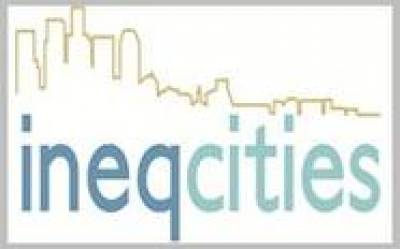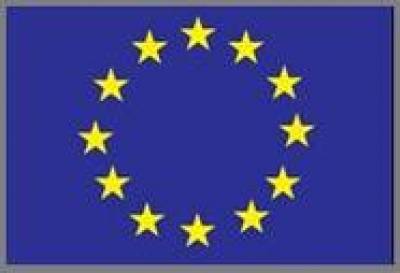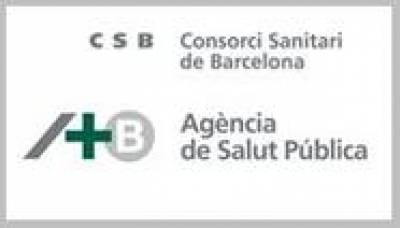For further information on socio-economic inequalities in health alongside information on urban health policies, please visit the suggested links below.
Research Projects
-
The SOPHIE Project (2011-2015)
- SOPHIE examines the impact of structural policies on health inequalities in Europe by developing innovative methodologies to evaluate these policies.
-
The DRIVERS Project (2007-2013)
- The DRIVERS research project seeks to address the strategic determinants of inequalities in health by focusing on three key drivers of health inequalities: early childhood development, fair employment and income and social protection.
-
DEMETRIQ: Developing methodologies to reduce inequalities in the determinants of health
- DEMETRIQ aims to evaluate the impact of a broad spectrum of social, economic and health policies on the pattern and magnitude of health inequality.
-
- GRADIENT aimed to address the lack of knowledge surrounding how to tackle inequalities in health, insuring that political momentum is maintained and that operational strategies can be developed to make progress on this issue. The focus of the research project was on families and children.
-
The Euroregio III Project (2009-2011)
- Euroregio III explored and assessed the use of structural funds for direct health investment from 2000-2006 and 2007-2013. In particular, Euroregio III focuses on how to improve the effectiveness, efficiency and sustainability for direct health system investments using Structural Funds in the next funding cycle, 2014-2020.
-
EURO-URHIS 2 (The European Urban Health Indicators System, Part 2)
- EURO-URHIS 2 is developing, testing and validating comparable urban health indicators for over 40 European countries.
-
- Eurothine investigated health inequalities in various
European countries to provide actionable information to aid European and national
policy-makers.
- Eurothine investigated health inequalities in various
European countries to provide actionable information to aid European and national
policy-makers.
-
The Public Health Disparities Geocoding Project
- The Public Health Disparities Geocoding Project sought to rectify the lack of socio-economic data in U.S. public health surveillance by developing geocoding surveillance and area-based socio-economic measures.
-
- An adequate approach to health variations demands actions directed at their causes; these include inequalities in terms of environmental living and working conditions and accessibility to essential resources, goods and services and lifestyles differences. Those policies capable of influencing those determinants include, obviously, the health system, but they are, mainly, out of its scope and are characterised by social complex interventions. After extensive research, today is accepted as a fact that health is more than the result of individual biology or genetics, behaviours or lifestyle options. Health is also determined by conditions and characteristics of individual variables; income or educational levels, family history and birth and growing conditions or the living and working conditions are also relevant.
-
Healthy Seuxal Project, Juntos Pela Saude
- The Healthy Seuxal Project municipal action on the health and wellbeing of the population. This project creates, develops, and evaluates health dynamics, getting everyone involved together in the spirit of partnership, co-operation and citizenship.
Research Groups, Institutes and Networks
-
- MEDEA is part of the Spanish Biomedical Research Network on Epidemiology and Public Health whose aim is to analyse socio-economic and environmental inequalities in small areas of cities in Spain and Europe.
-
UCL Institute of Health Equity
- The UCL Institute of Health Equity seeks to reducing health inequalities worldwide by studying the social determinants of health. In particular this institute seeks to increase health equity by focusing on influencing global, national and local policies, advising on and learning form practice, building an evidence base and by developing capacity.
-
- EuroHealthNet is a network of organisations, agencies and statutory bodies in Europe working to promote health and equity by addressing factors that determine health directly or indirectly.
-
Equity Action: The Joint Action on Health Inequalities
- Equity Action focuses on developing capability across member states with a particular focus on: developing knowledge for action on health inequality, supporting the engagement of member states, regions and other stakeholders in action to tackle the socio-economic inequalities in health, shared learning between member states and other actors, and supporting the development of effective action to tackle socio-economic health inequalities at the EU policy level.
-
Inequality Watch: The European Observatory of Inequality
- Inequality Watch is a network of associations and research centres to observe the state and evolution of inequality in Europe.
-
WHO European Healthy Cities Network
- The WHO European Healthy cities Network consists of European cities that are committed to health and sustainable development. The overarching goal is health and health equity in all local policies, focusing on caring and supportive environments, healthy living and healthy urban design.
-
Biomedical Research Centre Network for Epidemiology and Public Health (CIBERESP)
- CIBERESP examines the magnitude and distribution of health issues based on segregating factors such as geography, culture and gender (please note this website is in Spanish).
-
Portuguese Network of Healthy Cities
- The Project Healthful Cities is a movement of world-wide importance, based the concept of Health for All.
-
Brussels-Capital Health and Social Observatory: Health Atlas
- An interactive tool for monitoring 145 districts in Brussels. This Atlas includes maps, charts and graphs illustrating the state of neighbourhoods with different themes, including demography, the labour market, housing and so forth.
Organisational Websites
-
World Health Organization: Social Determinants of Health
- The WHO established the Commission on Social Determinants of Health (CSDH) in 2005 to provide advice on how to reduce them. The Commission's final report was launched in August 2008.
-
European Portal for Action on Health Inequalities
- The European Portal for Action on Health Inequalities contains information and outcomes of various key initiatives involving health inequalities.
-
- Information about the European Union's policies and actions to reduce health inequalities throughout Europe.
-
Urban HEART: Urban Health Equity Assessment and Response Tool, WHO Centre for Health Development
- Urban HEART is an online guide for local and national officials to identify health inequities and plan actions to reduce them.
-
Social Polis: The Social Platform on Cities and Social Cohesion (2007-2009)
- Social Polis is an open social platform for dialogue between scientific and policy communities as well as civil society organisations and networks on priorities for research on cities and social cohesion.
Reports
-
Atlas of Mortality in Spanish Cities, 1996-2003 (PDF)
- The Atlas of Mortality in Spanish Cities provides a visual description of socio-economic inequalities in mortality within different areas of Spanish cities.
-
- This report from the WHO summarises the evidence on the social determinants of health in the urban context, drawing on findings from the Commission on Social Determinants of Health and the European Review of Social Determinants of Health and the Health Divide
-
- The Commission of Social Determinants of Health was set up to marshal the evidence on what can be done to promote health equity, and to foster a global movement to achieve it. This document is the commissions finally report in 2008.
-
- The final report of Hidden Cities exposes the extent to which certain city dwellers suffer disproportionately from a wide range of diseases and health problems and highlights the challenges and opportunities urbanisation brings and its effect on human wellbeing.
-
State of the World's Cities 2008/2009: Harmonious Cities (PDF)
- The State of the World's Cities was conducted by the United Nations Human Settlements Programme (UN-HABITAT) and focused on the importance of the spatial, social and environmental aspects of cities and their inhabitants.
-
The Marmot Review: Fair Society, Healthy Lives, 2010 (PDF)
- Final report of an independent review on the current state of health inequalities in England which proposes the most effective evidence-based strategies for reducing health inequalities in England.
-
- Executive Summary of the review of social determinants of health in Europe which pulls together information gathered by the WHO Commission on the Social Determinants of Health, the Strategic Review of Health Inequalities in England post 2010, and other pieces of evidence from Europe and translates these into policy proposals.
-
- This report examines the social gradient in health and explains how psychological and social influences affect physical health and longevity. It further examines the role of public policy in shaping a social environment that is more conducive to wellbeing.
-
- This report contains 166 specific recommendations to reduce health inequalities in Spain.
-
- This report provides a comprehensive overview of the state of men's health across the 27 member states of the European Union, the four states of the European Free Trade Association and the three candidate countries. This report focuses on a wide range of social determinants of health that affect men and gives an insight into why men seem so vulnerable to premature death and certain health damaging lifestyles.
-
- This paper is a synthesis of discussions held at the WHO Expert Group Meeting, 2nd-4th November 2010 at the University of Liverpool. It discusses the importance and challenges of evaluating universal policies which seek to reduce health inequities.
 Close
Close





